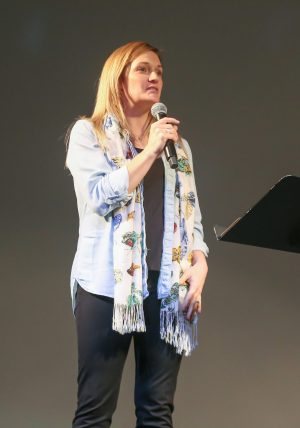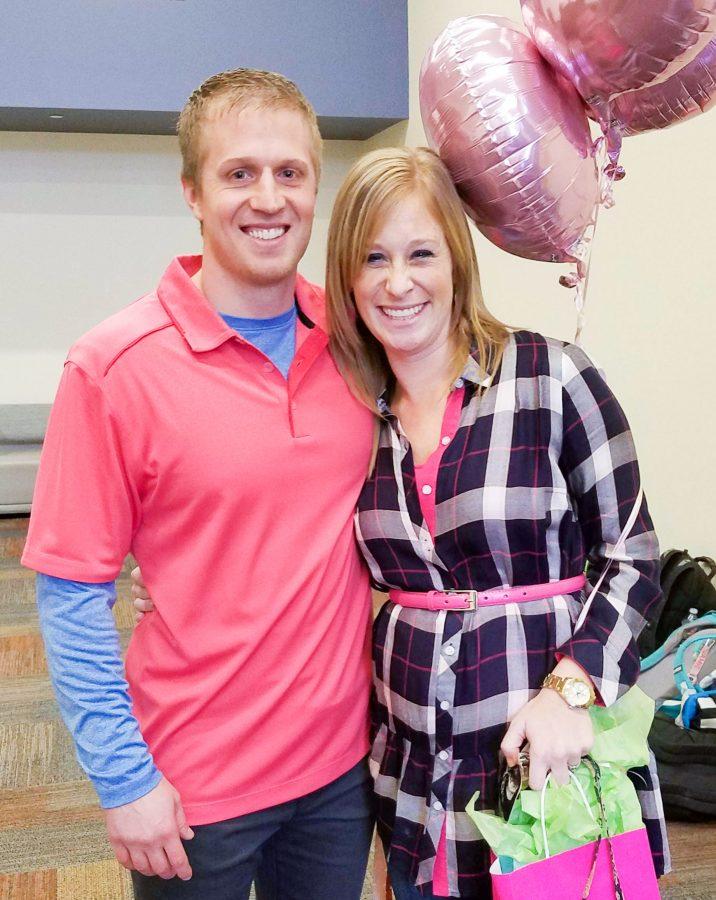59,000,000 abortions. Since Roe v. Wade legalized abortion in 1973, the number of lives lost has grown to include more than the populations of New York City, Los Angeles, Chicago, Dallas/Fort Worth and Houston combined.
In a passionately divided world, Christians face a major challenge in communicating ideas that may not be popular in a factual, logical, practical and persuasive way. Pro-life speaker Megan Almon from the Life Training Institute explained to students in Chapel how to use logic-based arguments to prove the validity of the statement: abortion is wrong.
When engaged in a conversation about abortion, the key is to answer: what is a fetus?
She broke down the proof that a fetus is a human life into four areas (SLED):
Size: True, embryos are smaller than newborns and adults, but why is that relevant? Do we really want to say that large people are more human than small ones? Men are generally larger than women, but that doesn’t mean that they deserve more rights. Size doesn’t equal value.
Level of development: True, embryos and fetuses are less developed than the adults they’ll one day become. But again, why is this relevant? Four year-old girls are less developed than 14 year-old ones. Should older children have more rights than their younger siblings? Some people say that self-awareness makes one human. But if that is true, newborns do not qualify as valuable human beings. Six-week old infants lack the immediate capacity for performing human mental functions, as do the reversibly comatose, the sleeping and those with Alzheimer’s disease.
Environment: Where you are has no bearing on who you are. Does your value change when you cross the street or roll over in bed? If not, how can a journey of eight inches down the birth canal suddenly change the essential nature of the unborn from non-human to human? If the unborn are not already human, merely changing their location can’t make them valuable.
Degree of Dependency: If viability makes us human, then all those who depend on insulin or kidney medication are not valuable. Conjoined twins who share blood type and bodily systems also have no right to life.

Pro-Life speaker Megan Almon from the Life Training Institute outlines a common sense approach for students to use when the subject of abortion comes up. She believes students have the power to change hearts and minds.
Mrs. Almon’s calm, thoughtful approach to dispelling the case made by pro-choice believers helped students really think through the issue, and they now feel better equipped to be ambassadors for the unborn.
Senior Rachel Mathes said, “I thought the speaker did well communicating the importance of finding simple, common sense flaws in pro-choice arguments that will allow me to debunk their arguments easily by proving the clear facts about life and the importance of life in and out of the womb. The use of acronyms like SLED (size, level of development, environment and degree of dependence) allow for quick recall of talking points about the concept of life. I feel like her simple approach to pro-choice arguments has equipped me to be effective in my own arguments.”
Mrs. Almon said, “If I could tell students one thing it would be to take their gifts and leverage them in a way that spreads the truth. If you are a great artist, share the message in your art. If you write music, put it in your lyrics. If you are a talented speaker, find groups who will listen. The world loves beauty, and your gifts can influence others.”
History teacher Cindy de León said, “I love how she is equipping us how to be winsome, logical and uncompromising in defense of life–regardless of whether unborn, disabled, terminally ill or the elderly. SLED is applicable no matter a person’s circumstance. I also appreciate that she did not back away from the emotionally charged and difficult situation faced when a girl or grown woman finds herself pregnant due to rape or abuse.”



